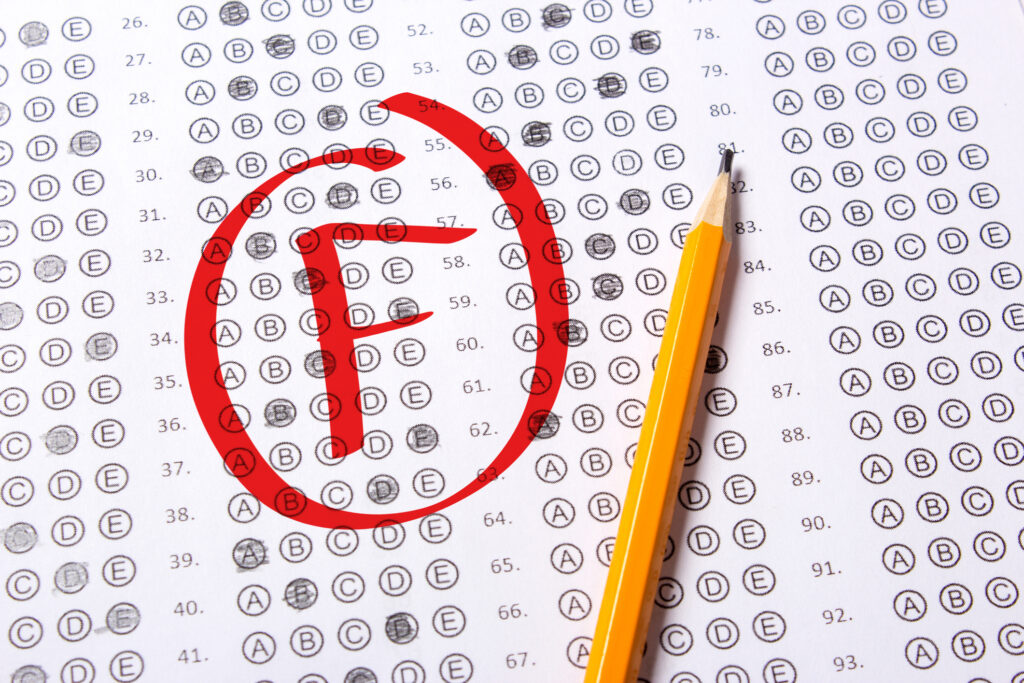School choice advocates were handed their biggest victory to date on November 9 when the U.S. Supreme Court refused to hear a challenge to the Wisconsin Supreme Court’s June ruling in support of the Milwaukee Parental Choice Program.
The Wisconsin Court had determined that Milwaukee’s voucher program–which allows children to attend private or religious schools at public expense–does not violate the constitutionally required separation of church and state.
Although voucher opponents tried to minimize the significance of the high court’s action on the nation’s first major school choice program, the justice’s 8-1 rejection of a challenge to vouchers on constitutional grounds provides a clear signal for other states to proceed with similar programs.
“What this means is that the Wisconsin Supreme Court ruling stands as the most definitive statement to date on the constitutionality of school choice, and the families and schools in the program can proceed with a greater degree of certainty,” said Clint Bolick, litigation director of the Washington, DC-based Institute for Justice, which is supporting school choice programs across the nation. “This is a remarkable victory,” he added, because the Wisconsin Supreme Court ruling is “so definitive and unequivocal.”
The U.S. Supreme Court rejected arguments from what Bolick called “one of the most powerful special-interest alliances ever assembled in court”–the National Education Association, American Civil Liberties Union, National Association for the Advancement of Colored People, People for the American Way, National School Boards Association, and other organizations–which argued the Milwaukee choice program violates the Establishment Clause of the Constitution’s First Amendment.
As revised three years ago, when it was expanded to include religious schools and up to 15 percent of the city’s 105,000 students, the Milwaukee Parental Choice Program provides a voucher of up to $5,000 directly to the student, whose parents then select one of the city’s 84 private or religious schools where the voucher can be used for tuition. Roughly two-thirds of those schools are religious.
This year, some 6,100 low-income children are enrolled in the program out of an eligible population of approximately 15,000. Prior to the Wisconsin court’s June decision, participation had been limited to approximately 2,000 students. Of the 4,100 new students, 3,000 already had been attending private schools, many supported by PAVE (People Advancing Values in Education) after voucher opponents filed a lawsuit to block access to the expanded program in 1995.
“The Court’s decision today removes the last hurdle for Milwaukee’s most disadvantaged children to reach the lifeline of a quality education,” declared Pete Hutchison, general counsel for the Landmark Legal Foundation. “This is a victory for countless low-income Americans who are frustrated and ill-served by the giant public school monopoly,” he added.
Landmark has successfully defended the Milwaukee Parental Choice Program since 1990, when it was first approved by the GOP-led legislature after being championed by Wisconsin State Representative Annette “Polly” Williams, State Senator Gary George, and Governor Tommy Thompson. After a prolonged court battle, the Wisconsin Supreme Court ruled in June that the program did not violate church-state separation, since the vouchers were given to students, not directly to the schools.
“The education establishment–its unions, its bureaucrats, and its ideological bedfellows–have for a decade fought this opportunity scholarship program despite overwhelming public support,” said Hutchison.
It’s very likely that the U.S. Supreme Court will be called upon to hear other school choice cases before the turn of the century. Battles over various constitutional aspects of parental choice in education are being fought in state courtrooms in Arizona, Ohio, Maine, and Vermont. Until then, said Bolick, “this ruling diminishes the credibility of those who would argue that school choice poses possible constitutional problems.”
Despite the setback of having its constitutional challenge to the Milwaukee program rejected by the U.S. Supreme Court, the nation’s largest labor union vowed to continue its campaign to crush vouchers on legal grounds–while at the same time making an unsubstantiated appeal on emotional grounds that vouchers “damage” and “weaken” public schools.
“We believe the Wisconsin Supreme Court was wrong,” said Robert H. Chanin, general counsel for the National Education Association, “and NEA and its affiliates will continue legally to oppose these types of voucher programs and other efforts to use public funds for religious schools wherever they arise, on both state and federal constitutional grounds.”
The NEA labor union is the largest, best-financed, and best-organized opponent of school choice, with 2.4 million dues-paying members made up elementary and secondary public school teachers, higher education faculty, education support personnel, school administrators, retired educators, and students preparing to become teachers.
George A. Clowes is managing editor of School Reform News.
For more information …
The complete text of the Wisconsin Supreme Court’s June decision in support of the Milwaukee Parental Choice Program is available through PolicyBot in five parts. Point your Web browser to http://www.heartland.org, click on the PolicyBot icon, and search for old documents #2184811 (part 1, 15 pp.), #2184812 (part 2, 15 pp.); #2184813 (part 3, 15 pp.); #2184814 (part 4, 13 pp.); and #2184815 (part 5, 11 pp.).



